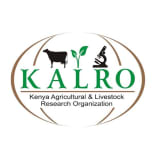
KARI was established in 1979 as a semi-autonomous government institution. The new institute continued research activities from the East African Agricultural and Forestry Research Organisation (EAAFRO), East African Veterinary Research Organisation (EAAVRO) and, finally, the Ministries of Agriculture and Livestock Development. In 1986, the Kenyan government recognised the challenge to meet long-term food production constraints in the country. The Kenya Veterinary Vaccines Production Institute (KEVEVAPI) and the Kenya Tripanosomiasis Research Institute (KETRI) have been integrated into KARI more recently. This was due to the recognition of the need by the government to further strengthen its agricultural research system to create an institutional framework to effectively manage, reorganise and consolidate agricultural research within the country.
By act of parliament the Kenya Agricultural & Livestock Research Organisation (KALRO) was established in 2013. It merged with KARI, Coffee Research Foundation, Tea Research Foundation and the Kenya Sugar Research Foundation and has oversight of 18 research institutes.
The Kenya Agricultural and Livestock Research Organization (KALRO) is the premier national institution bringing together research programmes in food crops, horticultural and industrial crops, livestock and range management, land and water management, and socio-economics. KALRO promotes sound agricultural research, technology generation and dissemination to ensure food security through improved productivity and environmental conservation.
The national blue print Vision 2030 recognizes the role of research in technology generation and creation of new knowledge; all of which are vital in national development. Vision 2030 also places great importance on value addition in agriculture and livestock as a means of raising rural household incomes as captured by the sector’s driving strategy, the Agricultural Sector Development Strategy 2010–2020. In implementing the second medium term plan the Kenya Government reformed the National Agricultural Research Systems through creation of the Kenya Agricultural and Livestock Research Organization (KALRO). Its formation was aimed at restructuring agricultural and livestock research into a dynamic, innovative, responsive and well-coordinated system driven by a common vision and goal. KALRO is a corporate body created under the Kenya Agricultural and Livestock Research Act of 2013 to establish suitable legal and institutional framework for coordination of agricultural research in Kenya with the following goals:
While striving to fulfil the stated goals, KALRO will be obliged to:


